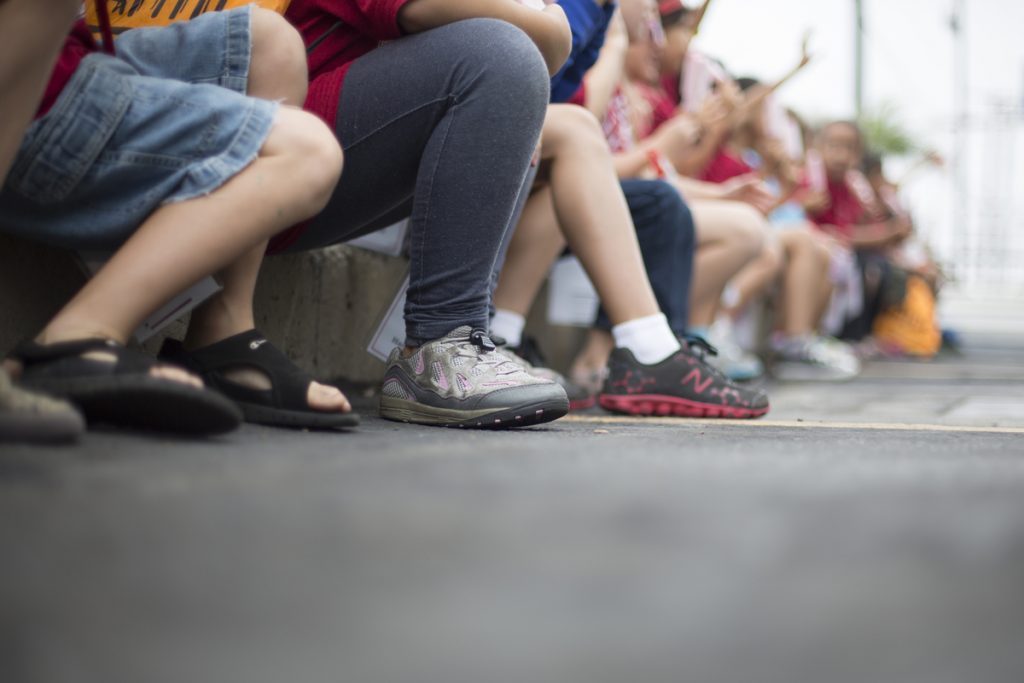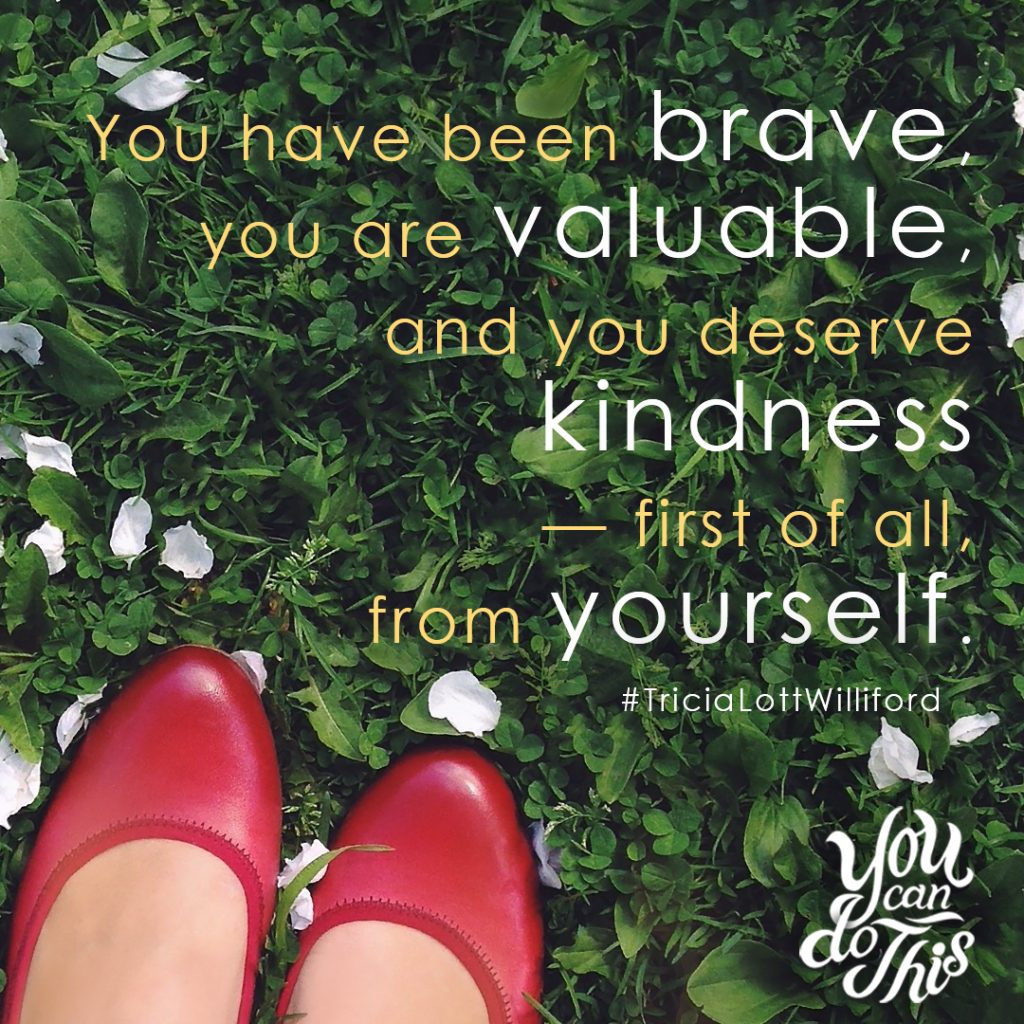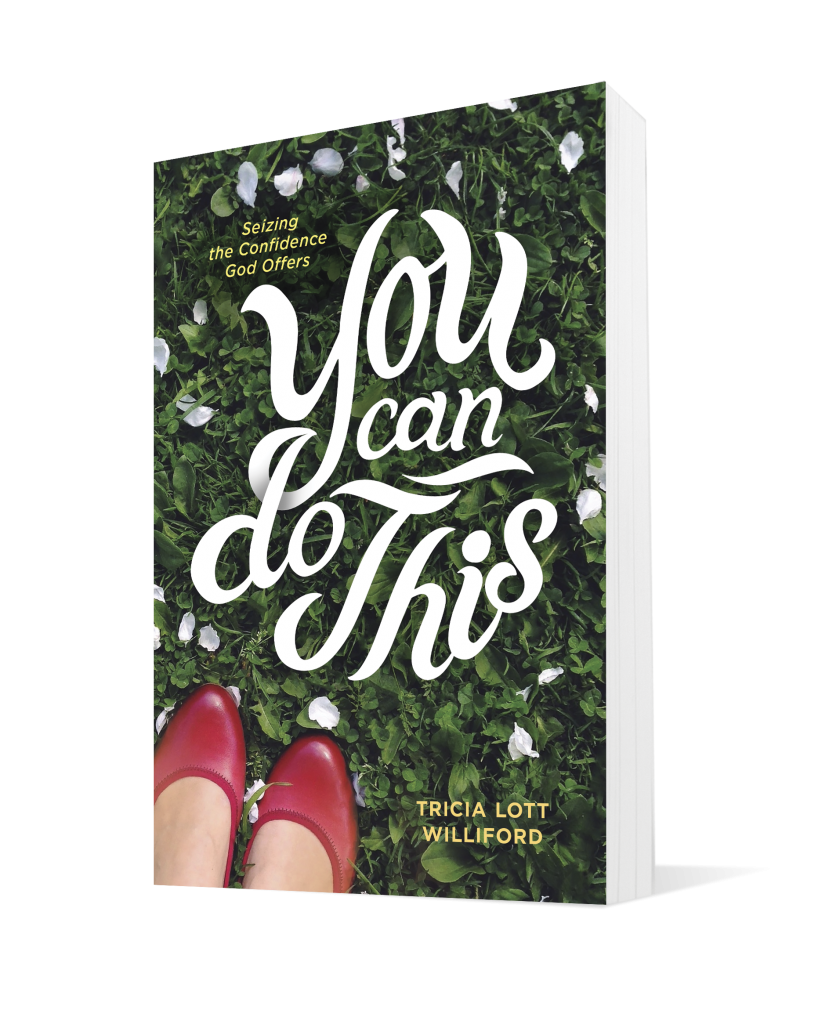The first bully of my life was my fourth-grade teacher. My teacher, whom we will call Mrs. Wretched, seemed about eighty-nine years old, she wore polyester skirts and sensible shoes, and the flesh of her arms swayed when she wrote in cursive on the board. In what I can only assume was a grand gesture to avoid favoritism, she made sure none of her students felt liked or even acceptable at all. She yelled at children who looked out the window. Children who tattled on their classmates were sentenced to wear the Tattletale Nametag.
Children who leaned back on the rear legs of their chairs were banished to stand in humiliation for the rest of the day. There were rumors she had a box of stolen kittens in the bottom drawer of her desk. In my memory, she had warts on her face and a long pointy chin and a dog that she kept in a basket on the back of her bicycle. I’ll agree to perhaps a very slim and remote possibility that she’s become a caricature in my memory, but the truth is that Mrs. Wretched was legendary, and she was my introduction into the deep, dark waters of public education.
Mrs. Wretched and I had a rough start to our year together, and it was hard to recover from that. As the first days lined up to become the first month, I found a routine in my new environment, but sadly very little improved. I had always loved school, but now my favorite parts of the day were any chances I found to leave the classroom. Recess, music, gym, art—I craved any opportunity for a break from her watchful, witchlike gaze. She was mean, and her unkindness stood out as the blatant opposite of the teachers I had had to that point in my young life. I had fallen so in love with my second-grade teacher that I had outlined my own career path to become a teacher just like her, and my third-grade teacher had named me her “little author” and wooed me into writing. I aimed to please, and my kind teachers rewarded my efforts with smiles and kindness. After love affairs with my earliest teachers, it never occurred to me that not every educator loves her job—that perhaps they wouldn’t all love me.
Early in the fall, our school celebrated Right to Read Week. It was a nerdy version of spirit week, with daily themes like “Choose Your Favorite Punctuation!” or “Be an Adverb!” or “Dress Like Your Favorite Person from American History!” For the last one, I chose Betsy Ross, and my costume became a family project. On that day, I went to school in a long, blue colonial dress, my curly hair swept up in a bun, and I even carried a picnic basket with an American flag carefully peeking out from under its lid. I mean, really, it was indisputable: I was a very charming Betsy Ross. Whatever you’re picturing isn’t nearly cute enough.
I started the day with my confidence restored. I had even packed an extra outfit for gym class—such was my preparedness. I’m pretty sure I said to myself, I’ve so got this, or whatever was the equivalent circa 1988. I stopped by Mrs. Wretched’s desk, and I asked her, “Where should I put my clothes for gym class today?”

In retrospect, I knew the answer to that question. Of course any extra items of mine would go in my locker. But I think I wanted to give her the chance to be overjoyed by my costume. I probably pictured in my mind a scene similar to Randy’s dream in the classic movie A Christmas Story, when his teacher reads through so much drivel until she finds his paper, finally one worth reading, the work of a student who has restored her faith in education and her very self. In other words, I set myself up to inevitably see firsthand how very unimpressed she was.
“I don’t even know why you’re dressed like this,” she said. I took a step back, feeling shoved away by her disgust.
“Because it’s American History Day,” I said, my voice wavering.
“That is tomorrow. Now go change your clothes.”
I carried my American flag, my picnic basket, my extra clothes, and my nine-year-old dignity down the hall to the bathroom, trying to decide what to do with it all. I pulled the pins out of my bun and shook my hair free. I stuffed my colonial dress into the basket, I changed into a very plain T-shirt and pair of jeans, and I gave myself a few minutes to just cry.
I just wanted to move forward, to go on with the day, to somehow get out of the crosshairs. But when I came back to the classroom, even though I tried to will myself to be invisible, she noticed I had been crying.
“Crying again, I see,” she said, with an exasperated sigh. And then, loud enough for everyone to hear, “Tricia, I have never in my life met a child with less confidence than you. I certainly hope you grow up to have more confidence as an adult, because you are a child with none.”
Who does that? Who says that to a child? I was devastated. I didn’t know what the word confidence meant. I didn’t know what it was. But when I was nine years old, an adult told me I didn’t have any of it. And when an adult slaps a label on your chest, it sticks.
Have you ever had someone like that in your life? Someone who threatened to steal the spirit right out of your soul, the joy right out of your smile? It’s sadly and likely true that you have a story similar to mine. Someone who stole your confidence right out of your pocket. Think about it. Let’s do a little detective work to think about who did this to you.
These thieves are probably the voices you still hear in your head when you’re right on the edge of doing something really creative, profound, brave, or simply joyful. If you’re like me, maybe you hear objections in your head: “You think you’re creative? Since when? When is the last time you had an idea that was actually yours, or worse, actually good?” Or, “Who do you think you are, trying to do something so brave? Leave that to the people with real courage. You’re just faking it.” Or, “Somebody sure thinks highly of herself, doesn’t she? Stop bragging. Don’t you realize how prideful that is? That’s not humility.” Or, “You’re an impostor. You might as well wave the white flag and give up, or else somebody’s going to blow the whistle on this little charade you’ve got going on. And I think we can agree it will be far less painful if you surrender on your own before somebody makes you.”
Were those painful to read? They were painful to write. I get it, my friend. Where do those voices come from in your life? Parents? Teachers? Coaches? Siblings? Bullies your own age, or as in my life, significantly older? How about an old boyfriend? Or maybe even the person you’re married to today? Maybe it’s something even bigger, something without a face or a voice, something harder to identify—like the culture of your church or religious beliefs of your family. Sometimes we get to a point in our lives when we realize that what the “grown-ups” have been telling us the Bible says wasn’t actually in there at all. Sometimes grace gets lost in criticism, and self-worth gets swept away with rules.
Look back on the stages of your life, and think of the people who influenced you. Childhood, adolescence, college years, early jobs, career, marriages, motherhood, successes, failures, and the transitions in between. Think about who walked with you in these journeys, and think of their voices. What did they say to you? Did they build you up or tear you down, give you life or drain you like a helium balloon with a slow leak? If these voices come into your head when you think of the worst things you believe about yourself, then my friend, you’ve found the thieves of your confidence. Their passing comments plant the seeds in a fertile ground of negative thoughts, and before we know it, those seeds grow into oak trees of personal beliefs.

Negative thoughts and beliefs are just that: thoughts and beliefs. They are not facts, and they do not need to be true. Each one of these holds you in bondage, and each one must be shut down. You are not ridiculous, overly emotional, selfish, or grandiose just because somebody said you are. What you are is terrified.
That’s the thing about negative thoughts and beliefs: They keep you scared. You’re afraid of getting hurt, afraid of being seen, afraid of being shamed or shut down for being less than the rest of the world. And these thoughts are ruthless. They will search until they find your most vulnerable place: your beauty, your lovability, your intelligence, your sexuality, your courage. When criticism finds vulnerability, it grabs on tight. And before we know it, we are bound tightly in the tentacles of an octopus that’s very much in charge. Girls, we very simply and truly and deeply cannot let those thoughts be in charge of us. We can get our confidence back from the thieves who stole it from us. We can choose a different way.
STEPPING FORWARD
Think about the time when your confidence was stolen from you. Jot down the details that come back to you—who said it, how they looked at you, the room you were in, the way you felt, how your parents responded if you talked about it. It’s so important to acknowledge the ways we’ve been hurt and the things that have been taken from us. Because here’s the thing about wounds: They almost never go away on their own. They only create thick scar tissue that keeps us from being real, authentic, brave, or confident. Write down what you remember about the ways your confidence has been taken.
Set a timer for twenty minutes, and journal about what you wrote down. Lean in to the pain instead of avoiding the memory. The infection is there; see if it will come out when exposed to the light of day.

In the same way, think about a time when you have stolen confidence from someone under your influence. Is there something you may have said to your husband, your sibling, or your child in a harsh moment of stress or exhaustion? If a memory comes to mind, it may have stayed in their minds too. A conversation and a request for forgiveness can restore the relationship as well as the very confidence that was stolen away.
Do something nice to reward yourself for all this emotional heavy lifting you’ve done today. You have been brave, you are valuable, and you deserve kindness—first of all, from yourself.
You’ve been reading with Tricia Lott Williford from her book You Can Do This. Keep reading or get the book here. Join the confidence conversation on her website- tricialottwilliford.com.


Thank you for this powerful article, Tricia.
Reminds me of my 4th grade teacher, Miss Riley, who seated me in a row of empty desks one row apart from the other students because I had eczema (dry skin I scratched) on my arms. Even with a doctors note, she separated me totally from other students. I went home in tears. My dear mother went to school the next day and set Miss Riley straight.